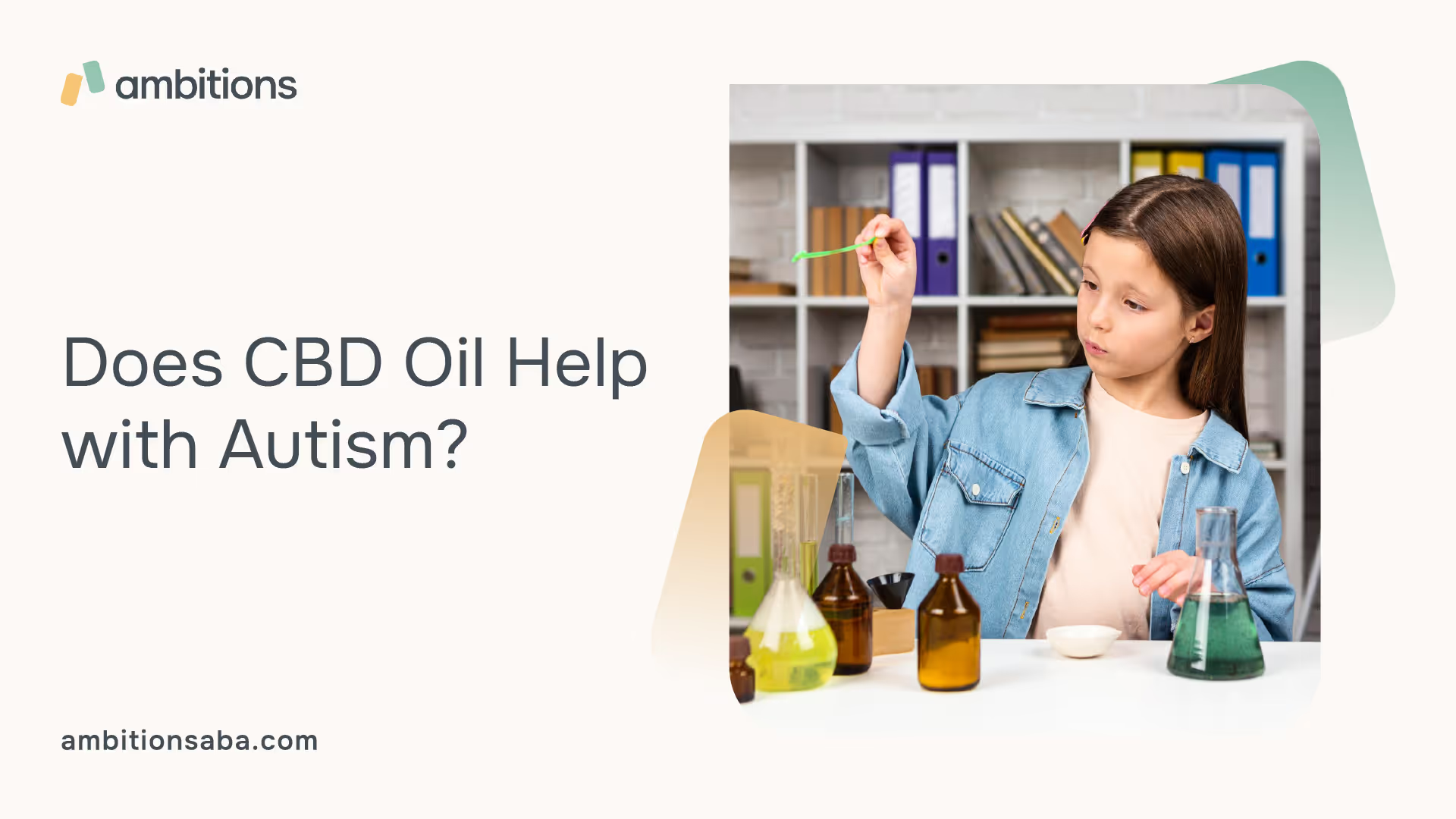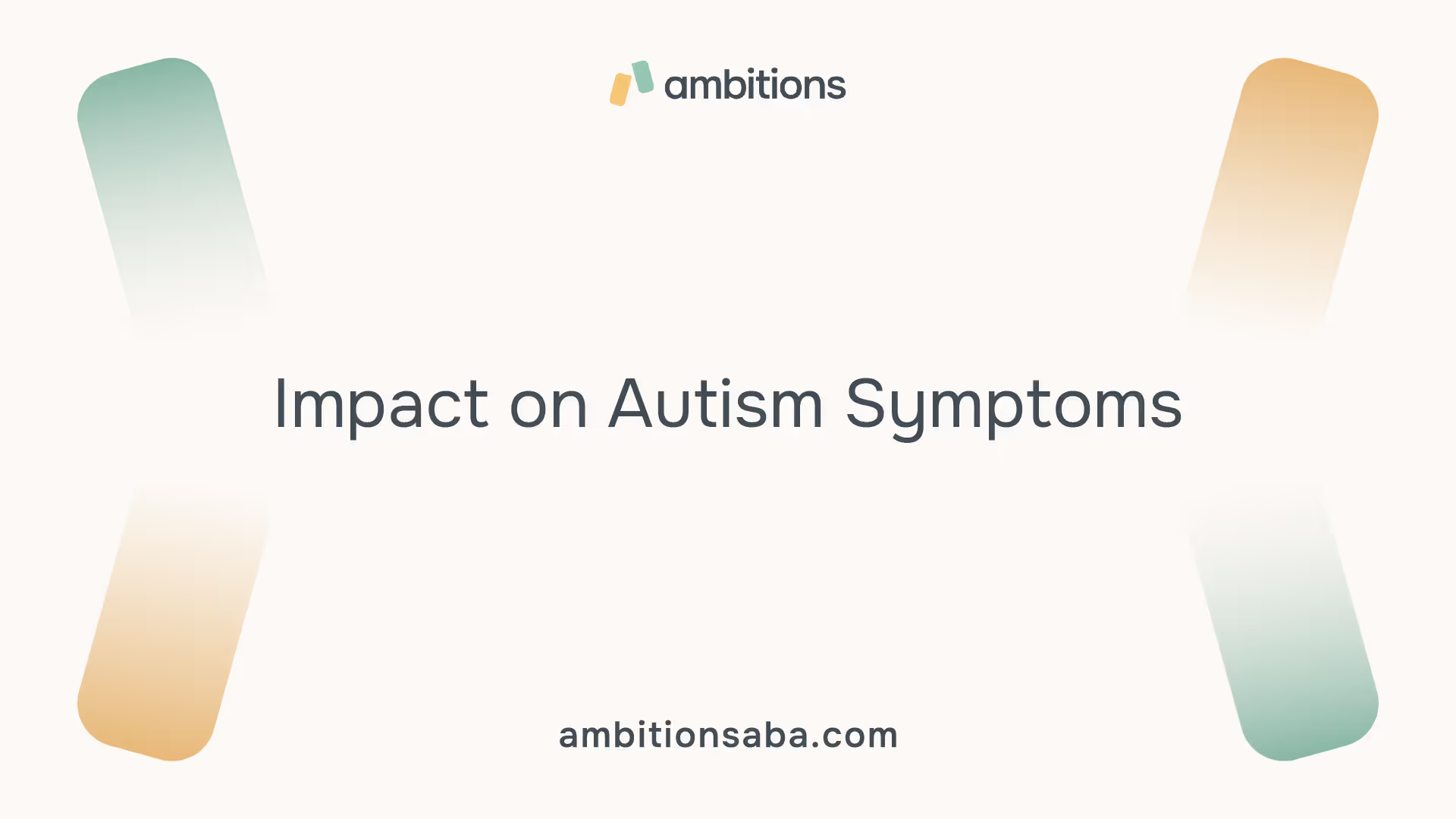
CBD Oil for Autism
CBD oil has gained attention as a potential therapeutic option for individuals with autism. Understanding what CBD oil is and its potential benefits is essential for parents seeking alternative approaches to support their children's well-being.
Understanding CBD Oil
CBD, or cannabidiol, is a natural compound derived from the cannabis plant. It is one of the many cannabinoids found in cannabis, but it does not have the psychoactive effects associated with THC, another well-known cannabinoid. CBD oil is created by extracting CBD from the cannabis plant and diluting it with a carrier oil, such as coconut or hemp seed oil.
CBD oil has shown promise in potentially reducing anxiety and stress levels in individuals with autism. It interacts with the body's endocannabinoid system, which regulates emotions and stress responses [1]. By modulating the endocannabinoid system, CBD oil may help promote a sense of calmness and relaxation in individuals with autism.
Benefits of CBD Oil
CBD oil has been suggested as a potential aid in improving sleep patterns for individuals with autism. It may regulate sleep-wake cycles through interactions with receptors in the endocannabinoid system that influence sleep regulation [1]. By promoting better sleep quality, CBD oil may contribute to overall well-being and improved behavior during waking hours.
Additionally, CBD oil may help ease aggression in children with autism. Anecdotal evidence suggests positive results, such as implementing calming techniques and decreased instances of physical violence. CBD oil's potential to reduce stress, aggression, self-injurious behaviors, and anxiety in individuals on the autism spectrum can significantly impact their daily lives [2].
Furthermore, CBD oil has shown promise in helping individuals with seizures and epilepsy, conditions that are common in children diagnosed with autism. CBD oil's anticonvulsant properties are believed to contribute to its potential benefits in managing seizures and epilepsy.
It is important to note that while CBD oil has shown promising results in anecdotal reports, further research is needed to fully understand its potential benefits and long-term effects. Consulting with healthcare providers is crucial when considering the use of CBD oil for children with autism, as they can provide personalized guidance based on the child's specific needs and medical history.
In the next section, we will explore the research and studies conducted on CBD oil for autism to gain a deeper understanding of its efficacy and potential limitations.

Impact on Autism Symptoms
CBD oil has gained attention for its potential benefits in managing symptoms associated with autism. Two key areas where CBD oil may have a positive impact are managing aggression and improving social interactions.
Managing Aggression
Aggression can be a challenging symptom to manage in individuals with autism. However, CBD oil has shown promise in helping to reduce stress, aggression, self-injurious behaviors, and anxiety in individuals on the autism spectrum, as well as aid children with co-occurring seizures.
Many parents have reported positive effects when using CBD oil to manage aggression in their children with autism. Anecdotal evidence suggests that CBD oil can help implement calming techniques and decrease instances of physical violence. CBD oil is believed to have anticonvulsant properties that can help individuals with seizures and epilepsy, conditions that are common in children diagnosed with autism. By reducing the frequency and severity of seizures, CBD oil may contribute to a decrease in aggressive behaviors [2].
Improving Social Interactions
Another area where CBD oil may have a positive impact is in improving social interactions. Autism is characterized by challenges in social communication and interaction. CBD oil has been reported to help individuals with autism feel more relaxed and at ease, which may positively influence their ability to engage in social interactions [2].
While research in this area is still ongoing, CBD oil shows promise as a potential supplement for individuals with autism seeking to improve social interactions. It's important to note that every individual is unique, and the response to CBD oil may vary. It is recommended to consult with a healthcare provider experienced in treating autism before considering CBD oil as a potential option.
As research and understanding of CBD oil's impact on autism symptoms continue to grow, it is essential to consider the individual needs of each person with autism and work closely with healthcare professionals to determine the most appropriate and effective treatment approach.

Research and Studies
To understand the potential benefits of CBD oil for autism, it is important to examine the existing research and studies conducted in this area. Both case studies and clinical evidence contribute to our understanding of the impact of CBD oil on autism symptoms.
Case Studies and Findings
A notable case study published in NCBI demonstrated the potential efficacy of CBD oil in managing symptoms associated with autism spectrum disorder (ASD). The study focused on a nine-year-old male patient diagnosed with nonverbal ASD. The patient experienced a reduction in negative behaviors, improved social interactions, concentration, and emotional stability with the use of a high CBD and low-dose THC oil formulation.
The patient in this case study was treated with a full-spectrum CBD oil formulation containing 20 mg of CBD and <1 mg of THC per milliliter. The treatment started with a low dose of 0.1 ml twice daily and gradually increased to 0.5 ml twice daily. Positive outcomes were observed in behavior, sleep, and communication with this CBD oil treatment.
The use of CBD oil led to significant improvements in the patient's sleep patterns, behavior, and communication skills. The patient experienced faster sleep onset, longer sleep duration, reduced anxiety, improved mood, and better concentration. Additionally, the patient showed enhanced academic performance and improved social interactions at school.
It is worth noting that the case study revealed a regression of behaviors to pre-treatment levels when access to CBD oil was interrupted for seven days during a family trip. This interruption resulted in the reappearance of insomnia, reduced verbal communication, and self-injurious behaviors. However, upon restarting the CBD oil treatment, these negative behaviors decreased once again.
Clinical Evidence
Clinical evidence also supports the potential benefits of CBD oil for individuals with autism. In a study published in Nature Portfolio, children and adolescents with ASD who were treated with CBD-rich cannabis exhibited significant improvements, particularly in social symptoms. Assessments such as the ADOS, SRS, and Vineland assessments were used to quantify these improvements. The study found that participants with more severe initial symptoms tended to experience greater improvements.
While case studies provide valuable insights into individual experiences, clinical evidence helps to establish a broader understanding of the potential benefits of CBD oil for autism. It is important to note that further research is needed to fully understand the mechanisms and long-term effects of CBD oil on autism symptoms.
Parents considering CBD oil for their child with autism should consult with healthcare providers who are knowledgeable about CBD and its potential benefits. These professionals can provide guidance on dosage, administration, and any potential interactions with other medications.
As research continues to evolve, it is essential to stay informed about the latest findings and recommendations regarding CBD oil for autism. By considering the available evidence and working closely with healthcare providers, parents can make informed decisions regarding the use of CBD oil as a potential supplement for managing autism symptoms.
Considerations for Parents
When considering the use of CBD oil for autism, there are important factors that parents should take into account to ensure the safety and effectiveness of the treatment. These considerations include dosage and administration, as well as consultation with healthcare providers.
Dosage and Administration
While CBD oil is generally considered safe, it's crucial to be mindful of dosing to avoid potential gastrointestinal side effects. Every child is unique, and their response to CBD oil may vary. Therefore, it's important to start with a low dosage and gradually increase it based on individual needs and responses.
Consulting with a healthcare provider experienced in CBD oil for autism is essential. They can provide guidance on the appropriate dosage for your child, taking into consideration factors such as age, weight, and the severity of autism symptoms. It's important to follow their recommendations closely to ensure the optimal therapeutic effect while minimizing any potential side effects.
Consultation with Healthcare Providers
Before starting any new treatment, including CBD oil for autism, it's essential to consult with healthcare providers who are knowledgeable and experienced in this area. They can provide valuable insights and guidance tailored to your child's specific needs.
Healthcare providers can help you understand the potential benefits and risks of using CBD oil for autism and address any concerns or questions you may have. They can also review your child's medical history and current medications to ensure there are no contraindications or potential interactions.
By working closely with healthcare providers, you can make informed decisions about incorporating CBD oil into your child's treatment plan. They can provide ongoing support and monitor your child's progress to ensure the treatment is safe and effective.
Remember, while preliminary findings suggest promising outcomes of CBD oil for individuals with autism, more rigorous research with larger sample sizes and controlled conditions is needed to draw definitive conclusions. Consulting with healthcare providers is crucial for personalized guidance and to stay up to date with the latest research in the field.
It's also important to note that CBD oil is not a substitute for comprehensive autism therapies, such as ABA therapy, social skills groups, and parent coaching. These therapies play a critical role in addressing various aspects of autism and supporting overall development.
By considering dosage and administration guidelines and consulting with healthcare providers, parents can make informed decisions regarding the use of CBD oil for their child with autism. Working in collaboration with healthcare professionals ensures the safety and effectiveness of the treatment, providing the best possible support for their child's unique needs.
Legal and Safety Aspects
When considering the use of CBD oil for autism, it's important to understand the legal and safety aspects associated with its use.
Legalization and Regulations
The legal status of CBD oil varies depending on the country and its specific regulations. In Australia, CBD oil is legal both through prescription by a doctor and over the counter in pharmacies nationwide. However, as of February 1, 2021, low-dose CBD oil is only available in pharmacies, and it will not be available over the counter until 2022 and onward [3].
In the United States, CBD oil is legal if produced using industrial hemp or hemp imported from Europe, as it contains less than 0.3 percent THC. It's important to note that medical marijuana, which contains THC, is illegal under federal law in the US. Therefore, it's essential to ensure that the CBD oil being used for autism is sourced from legal and regulated channels.
In the UK, due to outdated and restrictive legislation, the high-CBD leaves and flowers of hemp must be destroyed onsite. As a result, the hemp used for pure CBD oils by Good Hemp is derived from the USA, where the extraction of CBD oil from hemp leaves and flowers is permitted.
It's crucial to stay informed about the specific regulations regarding CBD oil in your country and consult with relevant authorities to ensure compliance.
Safety Measures
While CBD oil is generally considered safe, it's essential to take certain safety measures when using it for autism.
- Consultation with Healthcare Providers: Before starting CBD oil for a child with autism, it's important to consult with healthcare providers, including pediatricians or neurologists specializing in autism. They can provide guidance on dosage, potential interactions with other medications, and monitor any potential side effects.
- Dosage and Administration: CBD oil should be administered according to the recommended dosage guidelines provided by healthcare professionals. It's important to start with a low dosage and gradually increase it if necessary, under the supervision of a healthcare provider.
- Quality and Purity: To ensure safety, it's crucial to choose CBD oil from reputable brands that undergo third-party testing for quality and purity. Look for products that provide a Certificate of Analysis (COA) to verify the absence of contaminants and accurate CBD content.
- Monitoring and Reporting: Regular monitoring of the child's response to CBD oil is essential. Parents should observe any changes in behavior or side effects and report them to healthcare providers. This helps to ensure the ongoing safety and effectiveness of CBD oil for autism.
By adhering to legal regulations and implementing appropriate safety measures, parents can make informed decisions regarding the use of CBD oil for autism. It's important to work closely with healthcare providers to ensure the well-being of the child and to maximize the potential benefits of CBD oil as part of an overall treatment plan.
Future Research and Recommendations
While there is growing interest in the potential benefits of CBD oil for individuals with autism, it is important to acknowledge the limitations of current studies and identify areas that require further investigation.
Limitations of Current Studies
Despite some promising findings, it is crucial to recognize the limitations of existing research on CBD oil for autism. Many studies conducted so far have had small sample sizes and have utilized open-label designs, which may introduce bias and affect the reliability of the results. The placebo effect, where participants experience perceived improvements due to their expectations, is also a consideration in these studies. More rigorous double-blind, placebo-controlled trials are needed to provide more definitive evidence regarding the efficacy of CBD oil for autism.
Additionally, the use of different CBD oil formulations and dosages across studies makes it challenging to compare results and draw definitive conclusions. Standardization of CBD oil products and dosing protocols is necessary to ensure consistency in future research.
Areas for Further Investigation
To build upon the existing knowledge and address the limitations of current studies, further research is needed in several areas related to CBD oil for autism:
- Long-term Effects: Comprehensive studies examining the long-term effects of CBD oil use in individuals with autism are essential. These studies should assess not only the immediate effects but also the potential benefits and risks over an extended period.
- Optimal Dosage: Determining the optimal dosage of CBD oil for different age groups, severity levels of autism symptoms, and comorbidities is crucial. More research is needed to establish safe and effective dosing guidelines tailored specifically to individuals with autism.
- Specific Cannabinoids and Formulations: Investigating the effects of specific cannabinoids and their combinations in various formulations can provide valuable insights. Understanding the potential benefits of different cannabinoids and their mechanisms of action can help refine treatment approaches.
- Safety and Side Effects: Further research is needed to evaluate the safety of CBD oil, particularly in the context of long-term use and potential interactions with other medications. Monitoring and reporting of any adverse effects associated with CBD oil use in individuals with autism are essential.
- Effectiveness for Specific Autism Symptoms: Exploring the potential of CBD oil in addressing specific symptoms of autism, such as sensory sensitivities, sleep disturbances, and repetitive behaviors, can provide a more comprehensive understanding of its therapeutic potential.
As more research is conducted in these areas, a clearer picture of the efficacy, safety, and appropriate use of CBD oil for autism will emerge. It is crucial for researchers, healthcare providers, and parents to stay informed about the latest advancements in this field to make well-informed decisions.
For parents considering CBD oil as a potential treatment option for their child with autism, it is important to consult with healthcare providers knowledgeable in this area to discuss the possible benefits, risks, and appropriate dosing. While the current evidence base is evolving, careful consideration and guidance from medical professionals are essential to ensure the well-being and safety of individuals with autism.
References
[2]: https://www.autismparentingmagazine.com/cbd-oil-autism/
[3]: https://honahlee.com.au/articles/cbd-cannabidiol-oil/
[4]: https://www.goodhemp.com/hemp-hub/how-is-cbd-oil-made-the-process-explained/



